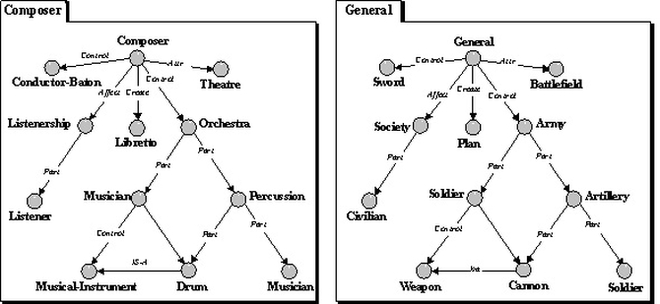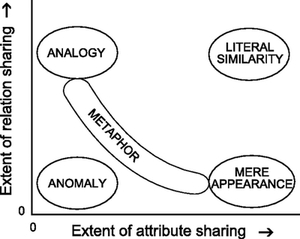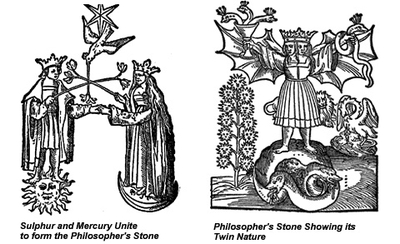I’ll bet you’ve clicked through dozens of titles running along the lines of “SEO is like {X}”. There are actually thousands of search results for these keywords (Google belches out 270.000 of them in less than a second).
Now, you must have seen at least some claims to enlightening / funny / helpful analogies about SEO. I kept seeing them, popping up as weeds (i.e. non-useful or downright harmful and invasive plants if you adopt the gardener's point of view) even among the more intentionally tended gardens of published ideas on the topic of SEO. At some point it passed the threshold of being interesting into being sometimes funny and the, progressively, into something annoying. Why so? Read below for the answer.
Key Points I want to argue:
- Most writers confuse analogies with metaphors
- A lot of them misuse or abuse the concept of analogy
- Given there are 270.000 search results, I would say overuse of the term analogy is non-debatable...
- Finally, the way people in a given field use analogies correlates with the overall rate of progress of that field. I give the example of Alchemy as an analogy to SEO.
What is an analogy?
Essentially, analogy-making is a process of perceiving one situation (target) in terms of another (base) thereby preserving the system of relations among elements and
transferring knowledge from the base to the target. The result of this process is what we call analogy. You can see above an example of an analogy I picked up from Tony
Veale’s PhD thesis to illustrate this.

Analogy vs. metaphor
I first figured this out when I was a psychology undergraduate back in 1998; I ended up at a great summer school
and workshop dedicated to analogy research. I was blown away by Douglas Hofstadter’s (the author of the mind-warping(!) book
Gödel, Escher, Bach: an Eternal Golden Braid) talk about analogy
being the centerpiece or core of mental abilities as humans.
But I digress...
During the conference at another great talk, Dedre Gentner (a name almost synonymous with analogy research) showed us a slide that somehow stayed with me during the years and I kept thinking about it (figure on the right). For me it was a small moment of epiphany - it clarified nicely in my mind the relationship between analogy - metaphor - similarity.

| Mere appearance | The glass tabletop gleamed like water |
|---|---|
| Anomaly | Coffee is like the solar system |
| Analogy | Heat is like water |
| Literal similarity | Milk is like water |
You see, there are many kinds of similarity. We can find similarities between two entities that are about their attributes (The glass tabletop gleamed like water) or about their relations (Heat is like water - as pressure differences makes water flow so temperature differences makes heat flow). The first is a mere appearance and the second is an analogy. I reproduced in the table the examples Dedre Gentner gives in her original paper (see table above). Metaphors on the other hand can span the whole range from being more relational (life is journey) to being more superficial attribute similarities (crystal clear sea).
People (not only my SEO tribe) have the tendency to call all types of similarities metaphors. Others extend the category of analogies to include all types of metaphors.
At this point, you should be asking me: “So what? If there is a continuum between analogies and metaphors, what does it matter?”
Why does it matter if we use metaphors or analogies?
SEO bloggers use analogies for several reasons:
- They are just being funny
- They are trying to share analogies that helped them communicate with a SEO layperson or a newbie
- They try to share deeper analogies that can help professionals have a better overarching framework of SEO
If you are publishing fun analogies, it doesn’t really matter what you call them and how deep they are. It could be argued pragmatically that if your goal is to better communicate with your client about what SEO is, then it still does not matter. On the other hand, if we try to help others have better understanding of what SEO really is about, help them build a better model in their heads of what SEO is and how it works, then it does matter.

In a great paper I urge you to read - The shift from Metaphor to Analogy in Western Science - Gentner and Jeziorski argue that one of the key factors in the development of western science was the shift away from the promiscuous use of all kinds of metaphorical similarity enjoyed by the alchemists during the middle age to the focus on structural analogy. Without the shift we would have no science as we know it today.

Interestingly, children seem to shift as well from an early focus on surface similarities early in their development to deeper relational and structural similarities.
Without this shift, children grow up to be cognitively impaired adults. Unless SEO starts a similar shift, we will forever be operating with a bunch of non-related ideas
resembling a child toybox jumble.
Now, to return to SEO use of Analogies. If we were to judge by the quality of the similarities SEO blogs produce and focuses on, we will have to admit that SEO, as a field, is:
a. at the cognitive development level of children that do not yet grasp nor seek to relate deeper structures.
b. at the historical stage of alchemists, that produce a lot of nonsense explanations instead of focusing on deeper structures and relationships.
The sooner we start thinking in terms of deeper structural analogies, the sooner we will start evolving toward being recognized as a subfield of applied information engineering, or something.






Posting comment as guest.
If you already have an account, please LOGIN.
If not, you may consider creating on. It’s FREE!